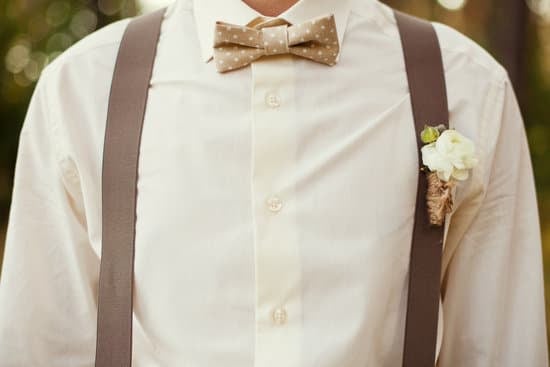When it comes to attending a wedding, choosing the right outfit can often be met with uncertainty. In particular, the question of whether wearing an ivory dress to a wedding is appropriate can spark confusion and debate among attendees. In this blog post, we will delve into the etiquette and controversy surrounding this topic, providing valuable insight for those grappling with this wardrobe dilemma.
Weddings are often accompanied by specific dress codes that dictate the appropriate attire for guests. Understanding these dress codes is crucial in making informed wardrobe choices for the occasion. Moreover, the controversy surrounding wearing ivory to a wedding stems from traditional views and expectations that have evolved over time, influencing opinions on what is considered acceptable wedding attire.
In addressing whether one can wear ivory to a wedding, it is important to consider various factors that influence the appropriateness of this choice. This includes understanding the potential impact on the bride and other guests, as well as alternative outfit options for those hesitant to wear ivory. By exploring these nuanced considerations, we aim to provide clarity on this commonly debated topic and offer guidance for navigating wedding attire etiquette.
Understanding Wedding Dress Codes
When attending a wedding, it’s essential to consider the dress code specified on the invitation. Whether it’s a casual, semi-formal, formal, or black-tie event, understanding the dress code is crucial in determining what attire is appropriate for the occasion.
Dress Code Variations
Casual weddings typically call for relaxed yet tasteful outfits such as sundresses or khakis and a nice button-down shirt. Semi-formal weddings may require cocktail attire or a dressy suit for men and a chic cocktail dress for women. In contrast, formal and black-tie weddings demand more formal ensembles – think tuxedos and elegant gowns.
Importance of Dress Codes
The purpose of wedding dress codes is to maintain a certain level of formality and elegance at the event while also complementing the couple’s vision for their big day. Adhering to the specified dress code demonstrates respect and consideration for the couple getting married and ensures that guests will feel comfortable and appropriately dressed.
Choosing Attire Accordingly
When contemplating whether you can wear an ivory dress to a wedding, it’s important to reflect on the specific dress code provided by the couple. While ivory may be acceptable at some types of events, it may not align with formal or black-tie wedding attire expectations. Ultimately, understanding the nuances of different wedding dress codes can help guide your outfit choices and ensure that you are dressed respectfully for the occasion.
The Controversy of Wearing Ivory to a Wedding
Traditional Views on Wearing Ivory
In many cultures, ivory is closely associated with the bridal gown and symbolizes purity and innocence. As such, it is customary for guests to avoid wearing any shade of ivory or white to a wedding out of respect for the bride. Doing so can be seen as detracting attention from the bride and may create unnecessary tension or discomfort.
The Impact on the Bride and Guests
Wearing an ivory dress to a wedding can have a significant impact on both the bride and other guests in attendance. For the bride, seeing another person wearing an ivory dress can be distressing as it takes away from her special moment as the center of attention. Additionally, other guests may find it distracting or disrespectful, potentially dampening the overall atmosphere of joy and celebration at the wedding.
It’s important to carefully consider these potential consequences before deciding whether or not to wear an ivory dress to a wedding. While personal style and individual expression are important, it’s crucial to prioritize respect for traditional customs and the feelings of those involved in this special occasion.
Can You Wear Ivory to a Wedding?
Can I wear an ivory dress to a wedding? This is a common question that many individuals ponder when preparing for a wedding event. While the traditional etiquette surrounding wearing ivory to a wedding may vary, it is important to consider the implications and potential controversy of this wardrobe choice. When contemplating whether or not to wear ivory to a wedding, there are several factors to take into account in order to make an informed decision.
When considering wearing ivory to a wedding, it’s essential to understand the significance of dress codes and their implications on wardrobe choices. Different types of weddings, such as beach, formal, and destination weddings, may require varying levels of formality in attire. Understanding the dress code specified for the wedding can greatly influence whether or not wearing an ivory dress is appropriate for the occasion.
In addition to understanding dress codes, it’s crucial to be mindful of potential controversies and impact on other guests when deciding whether or not to wear ivory to a wedding. Traditionally, wearing white or ivory as a guest at a wedding has been discouraged in order to avoid overshadowing the bride. It’s important to show respect for the bride’s special day and consider alternative outfit options that still align with personal style while adhering to etiquette guidelines.
Alternatives to Wearing Ivory
Wearing ivory to a wedding is a controversial topic that has sparked debates for years. For guests who want to steer clear of the traditional color but are still unsure of what to wear, there are several alternative outfit options available. Choosing a sophisticated and stylish ensemble that complements the wedding theme without overshadowing the bride is key.
One alternative to wearing an ivory dress to a wedding is opting for pastel colors such as blush pink, light blue, or lavender. These soft and romantic hues add a touch of elegance to your look while still adhering to traditional wedding attire etiquette. Additionally, floral prints in subtle and light-colored designs can also be an excellent choice for a spring or summer wedding.
If you’re not keen on wearing dresses, consider exploring chic separates such as a tailored jumpsuit or a skirt-and-top combination. These modern and fashion-forward alternatives can be dressed up with statement jewelry and accessories for an effortlessly stylish wedding guest look. It’s important to choose high-quality fabrics such as silk, chiffon, or lace for these pieces to ensure an elevated and polished appearance.
For those who prefer more classic and timeless ensembles, opting for neutral tones like taupe, champagne, or pale gray can be a safe yet stylish choice. These understated colors exude sophistication while avoiding any potential controversy of wearing ivory to the wedding. When it comes to alternative outfit options, it’s essential to prioritize comfort, confidence, and appropriateness for the specific wedding setting and dress code.
| Alternative Outfit Options | Description |
|---|---|
| Pastel Colors | Elegant hues like blush pink or baby blue offer a sophisticated alternative. |
| Chic Separates | Modern jumpsuits or skirt-and-top combinations provide a fashion-forward option. |
| Neutral Tones | Classic shades such as taupe, champagne, or pale gray exude timeless style. |
Tips for Choosing the Right Outfit
When attending a wedding, it is crucial to carefully consider your outfit choice in order to show respect for the couple and adhere to any dress codes that may be in place. Here are some tips for choosing the right outfit for a wedding:
1. Consider the Dress Code: One of the most important factors to consider when choosing a wedding outfit is the dress code specified on the invitation. Whether it’s black-tie, semi-formal, or casual, make sure to adhere to the stated dress code to ensure that you are dressed appropriately for the occasion.
2. Mind the Color: When wondering “can I wear an ivory dress to a wedding?” it’s important to remember that ivory is traditionally considered too close to white and can potentially upstage the bride. It’s best to steer clear of ivory, white, or anything that closely resembles these shades out of respect for the bride.
3. Opt for Elegant and Respectful Attire: Choose an outfit that reflects both your personal style and respects the formality of the event. For women, this could mean wearing a tasteful cocktail dress or a formal evening gown depending on the dress code. Men may opt for a well-fitted suit or tuxedo depending on the level of formality specified.
4. Comfort is Key: While it’s important to look stylish and respectful at a wedding, it’s equally important to feel comfortable in what you are wearing so that you can fully enjoy the celebration without being distracted by discomfort.
By following these tips and guidelines, you can ensure that your outfit is not only appropriate but also stylish and respectful when attending a wedding celebration. Remembering these considerations will allow you to show support for the couple while still expressing your personal style through your attire choices.
Etiquette of Wearing Ivory to Different Types of Weddings
When it comes to wedding attire, it is crucial to consider the specific type of wedding you will be attending. The dress code can vary widely depending on the venue and style of the event. Whether it’s a beach wedding, a formal affair, or a destination celebration, understanding the etiquette of wearing ivory to different types of weddings is essential in making an appropriate wardrobe choice.
For a beach wedding, the overall vibe is typically more casual and relaxed. In this setting, wearing an ivory dress could be more suitable as long as it aligns with the laid-back atmosphere. Opt for lightweight fabrics and flowing silhouettes that capture the essence of a beachy aesthetic. Avoid heavy embellishments or overly formal designs that may appear out of place in this setting.
On the other hand, formal weddings call for more sophisticated and elegant attire. While traditionally, wearing ivory to a wedding is considered taboo, some modern interpretations of black-tie events allow for cream-colored ensembles. However, it is important to exercise caution when choosing an ivory outfit for a formal wedding as it could inadvertently overshadow the bride’s gown.
Finally, destination weddings often combine elements of casual and formal affairs. Depending on the specific location and theme of the event, there can be flexibility in wardrobe choices. When considering wearing ivory to a destination wedding, take into account the cultural and stylistic influences of the location. Additionally, consider consulting with the couple or researching local customs if you are unsure about whether an ivory dress would be appropriate.
Overall, regardless of the type of wedding you are attending, it is essential to be mindful and respectful when selecting your attire. While wearing an ivory dress to a wedding can be acceptable in certain circumstances, it’s important to prioritize being a supportive guest above all else.
| Type of Wedding | Attire Guidelines |
|---|---|
| Beach Wedding | Lightweight fabrics and flowing silhouettes; avoid heavy embellishments |
| Formal Wedding | Sophisticated and elegant attire; exercise caution with cream-colored ensembles |
| Destination Wedding | Consider cultural influences; research local customs if unsure about appropriateness |
Conclusion and Final Thoughts
In conclusion, the decision to wear an ivory dress to a wedding is a delicate matter that requires careful consideration. The etiquette surrounding wedding attire, particularly the choice of color, holds significance in ensuring that the focus remains on the couple’s special day.
While traditional views may frown upon wearing ivory to a wedding due to its association with the bride’s gown, modern interpretations allow for greater flexibility in wardrobe choices. However, it is essential to approach this decision with sensitivity and respect for the bride and other guests.
Ultimately, whether one can wear an ivory dress to a wedding depends on various factors such as the specific dress code, the bride’s preferences, and cultural or religious considerations. It is crucial to prioritize the couple’s wishes and adhere to any guidelines they have set for their big day. However, if uncertain about the appropriateness of wearing ivory to a particular wedding, opting for alternative outfit options that still exude style and elegance can alleviate any concerns.
When selecting an outfit for a wedding, regardless of color choice, it is important to consider both personal style and etiquette guidelines. By approaching wardrobe decisions with mindfulness and respect for the occasion, guests can ensure that they contribute positively to the celebratory atmosphere while also honoring the significance of the event. Ultimately, weddings are joyous occasions meant for celebrating love and unity, and thoughtful attire choices can enhance this experience for everyone involved.
Frequently Asked Questions
Is It Okay to Wear Ivory to a Wedding?
It is generally not considered appropriate to wear ivory to a wedding, as it can be seen as trying to outshine the bride who typically wears a white or ivory dress. It’s important to be mindful of the bride’s choice of color and avoid wearing anything that could potentially overshadow her on her special day.
Is an Ivory Wedding Dress Okay?
While some modern brides may choose to wear ivory instead of traditional white for their wedding dress, it’s still best to avoid wearing an ivory dress as a guest. This color choice is closely associated with the bride, and wearing a similar shade could take attention away from her.
Can I Wear an Ivory Floral Dress to a Wedding?
A floral dress in ivory may be acceptable for a wedding, especially if the floral pattern features various colors and accents besides just ivory. However, it’s important to consider the overall style and formality of the wedding before choosing an ivory floral dress.
When in doubt, it’s always best to check with the bride or other members of the wedding party for guidance on attire.

I have been involved in marriages for over 20 years helping couples and singles understand more about them.





